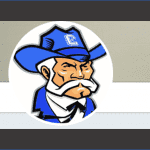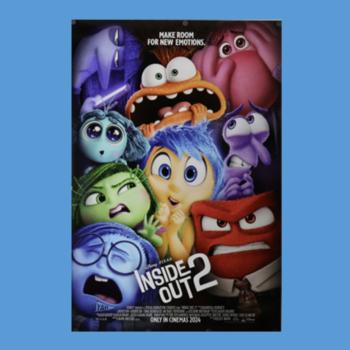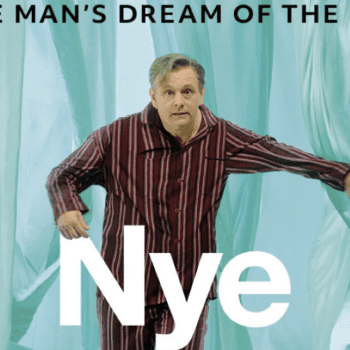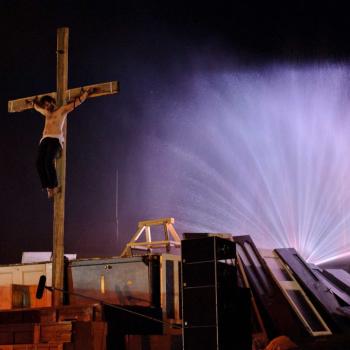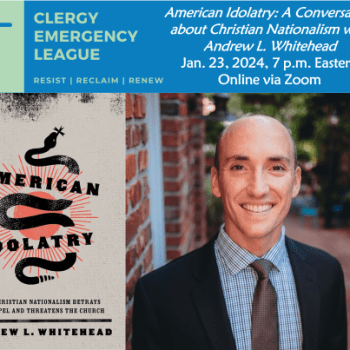I live in a house that I did not build. But it is the house I have inherited and for which I am now responsible. I have a story to tell about how I got here and what racism and white supremacy have done to me and others. You have a story, too. And we need to talk to each other, to share openly, to hold each other accountable. This process of raising awareness, self-reflection, and taking action in response to understanding is what’s known as “becoming woke.”
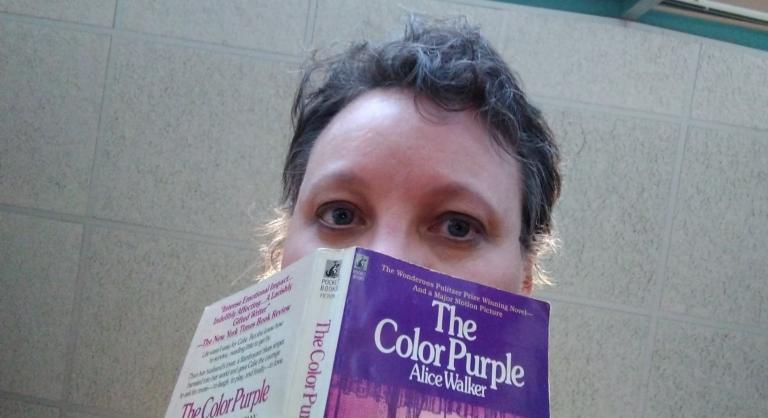
How does this “becoming woke” process unfold?
Understand that I can only speak for myself. I am sharing my own journey more to be descriptive rather than just prescriptive. I do, however, offer suggestions for undertaking your own journey and welcome the stories and suggestions of others from their journey.
In a previous post, I described my memory of the first time someone had a conversation with me about race. I was eight years old, and my third-grade teacher turned an embarrassing moment into a teachable moment. It was education that began my journey of awareness.
But it wasn’t until I was required to attend a workshop in seminary on racism awareness training that I started to grapple with my own personal racism and how it connects with systemic and institutional racism. It was an uncomfortable experience to say the least. At the beginning of the workshop, I felt like I was being put on trial and held accountable for sins that I had not committed. I didn’t own slaves. I didn’t lynch black people. I’m a good person. This trainer doesn’t know me! How can she say that I’m racist just because I’m white!
Then she put up this equation.
Racism = Prejudice + Power/Privilege
I had to admit to myself that I did experience prejudice. I did (and still do) succumb to stereotyping people in my mind. However, the trainer explained, all people pre-judge. It’s a normal social and personal mechanism for assessing people. But it becomes a problem when one group is invested with social, economic, political, and military power that enables the prejudices to become normalized, embedded, and encoded in ways we might not be aware of. This is especially the case if you are a member of the group that has the power and privilege. It’s the water we swim in, but are not conscious of. Nevertheless, this power and privilege enables people to act on their prejudices in harmful and even deadly ways.
Even as this was explained to me, I protested in my mind and aloud. What power do I have? I don’t hold political office. I don’t employee people. I wasn’t yet a pastor. I have no power. What is she talking about?
Then we each filled out a questionnaire to help us understand the power and privilege (or lack thereof) that each of us has inherited due to our skin color. It covered many of the subtle and not-so-subtle instances of institutionalized and cultural racism that happen every day, but that I am immune to because I am white. Again, it was education that began to open my mind.
But here’s what really opened not just my mind, but my heart to become woke.
It was books and movies that gave me insight and allowed me to step into the worlds of people who are not like me and to see things from their perspective. I can point to key novels that provided me with “a-ha” moments that opened my eyes and helped me see people of color – and myself and the world around me – differently. They helped me understand the history that informs the present. They helped me see the hidden systemic racist forces around me, like looking at CAT scans and x-rays revealing the structures and internal workings just beneath the surface.
Why is it that books and films were so effective for me? In a Feb. 26, 2018, Time magazine interview about his film Get Out, director Jordan Peele said this:
“The beauty of art and the beauty of a story are society’s ways of encouraging empathy . . . Every artist who puts their truth out there means to provoke conversation and provoke emotion. They are already doing something that is promoting empathy. They are inviting us into their heads. The division in this country comes from lack of empathy. It comes from the denial of one another’s experiences.”
These words ring true for me.
Empathy leads to compassion, which is the central component of my faith as a follower of Jesus Christ.
So when Toni Morrison puts me into Sethe’s world in Beloved, I am able to experience her story, her truth, and her pain as a black woman in post-Civil War America in a way that I hadn’t before.
When James Baldwin allows me to overhear a conversation with his nephew in his book The Fire Next Time about what it’s like to be a black man in a white man’s world in the 1960s, I am chastened, and my eyes are opened.
When powerful movies like Moonlight and Black Panther decenter me from my usual position of white-centeredness while allowing me to experience the world through the eyes of people of color, I am filled with amazement and energized to empathize.
When I turn on the radio station Urban View on Sirius XM and listen to hosts such as Joe Madison, Laura Coates, and Karen Hunter, they school me with their commentary, their perspective, and their responses to callers by sharing standpoints I would not otherwise have access to.
When Mary Crow Dog ushers me into her world as a Lakota Woman, I am ashamed, called to account, and moved to humble myself in the face of the misery she and her fellow Indigenous people have endured. It’s not that I caused that suffering. It’s that I’m part of a system that did, and still does. And if I do not learn humility in the face of such stories of oppression, if I do not assume the role of student – even as I am now a teacher and preacher – then I continue to be part of and perpetuate the centuries-old problems.
Do I always get it right? Heck, no.
I fumble. I stick my foot in my mouth. I have been guilty of self-righteousness and succumbing to “white savior syndrome.” I have been ridiculed for my eagerness and earnestness (from both whites and people of color).
But, fortunately, I have also been blessed with friends of color, as well as fellow whitefolks who are also engaged in this journey. My friends of color know that it’s not their job to teach me; rather, it’s my responsibility to learn. But they have been gracious enough to recommend many of the books and movies below, and then to engage me in conversation about them. They know it’s not their job to get me off the hook if I would whine “at least I’m trying.” Rather they have loved me enough to keep me on the hook until I can say, “Oh. I think I understand now.”
My fellow whitefolks know that it is not up to people of color to instruct us. It’s up to us as whitefolks to engage in this work and do it now. And each of us has come to know that a changed heart and mind is possible, because we’ve each experienced a gradual years-long journey of self-discover, awareness, repentance, and reconciliation.
It’s taken me decades to come to understand the harmfulness of my beliefs and my privilege. As I’ve said before, we have to start somewhere, and we have to start now. If you are interested in truly seeing things from the perspective of those who have suffered slavery, Reconstruction, Jim Crow, segregation, “the new Jim Crow,” and the ongoing effects of racist social structures in America, here are a few books and movies you may find helpful (all of which are available on Amazon).
This is, admittedly, an incomplete list. There are many more books, movies, articles, television shows, poems, theatre, and artwork that should be included. This is just a part of one white woman’s woke list.
Books and movies about the African American perspective (not listed in any particular order):
The Color Purple by Alice Walker
The Cross and the Lynching Tree by James Cone
The New Jim Crow: Mass Incarceration in the Age of Colorblindness by Michelle Alexander
The Fire Next Time by James Baldwin
Jesus and the Disinherited by Howard Thurman
Letters from a Birmingham Jail and The Drum Major Instinct by Martin Luther King, Jr.
Beloved by Toni Morrison
Their Eyes Were Watching God by Zora Neale Hurston
The Invention of Wings by Sue Monk Kidd (white author)
The Help by Kathryn Stockett (white author)
Movies:
42 (the story of Jackie Robinson)
Hidden Figures
Black Panther
Books about the American Indian experience (not listed in any particular order):
Ceremony by Leslie Silko
The Lakota Way by Joseph Maxwell
Lakota Woman by Mary Crow Dog
The Absolutely True Diary of a Part-Time Indian by Sherman Alexie
Books that offer tools and practices for talking about racism:
Anxious to Talk About It: Helping White Christians Talk Faithfully about Racism by Carolyn Helsel
Witnessing Whiteness by Shelly Tochluk
America’s Original Sin: Racism, White Privilege, and the Bridge to a New America by Jim Wallis
For diversity training:
I highly recommend going through a training session on diversity at VISIONS, Inc. http://visions-inc.org/ They are incredibly skilled in helping people:
- Communicate more effectively across difference.
- Create a non-judgmental atmosphere which allows for challenges and accountability without accusation and blame.
- Analyze complex issues regarding race, class, gender and other differences at the personal, interpersonal, institutional and cultural levels.
- Create strategies for inclusion that allow for engagement of all participants, so they can perform to their full potential.
I did the training in 2017 and found it enormously helpful. Whatever your vocation or family/friend situation, my hunch is that this training or others like it could be beneficial for your work, your relationships, and maybe even your future blog comments.
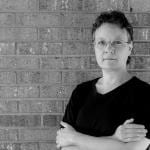
Leah D. Schade is the Assistant Professor of Preaching and Worship at Lexington Theological Seminary (Kentucky) and author of the book Creation-Crisis Preaching: Ecology, Theology, and the Pulpit (Chalice Press, 2015).
Twitter: @LeahSchade
Facebook: https://www.facebook.com/LeahDSchade/
Read also:
Hi, I’m Leah. I’m a Recovering Racist.
Kentucky, We Need to Talk About Our White Supremacist Problem


